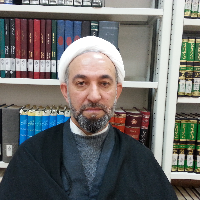Criticism and analysis of the narratives of prohibition of uprising and its relationship with power building
In Imamiyyah tradition gatherings, there are traditions that prohibit any uprising and movement before the uprising and appearance of Hazrat Mahdi (peace be upon him) and consider the raised flag as a manifestation of tyranny and the government arising from it as illegitimate. The existence of such narrations has caused some people, by adhering to these narrations, to consider any uprising and movement as forbidden before the advent, and accordingly, any preparation for the advent and strengthening of forces for it are ruled out. Therefore, the issue of the current research is that based on these traditions, any force building and training of forces for emergence should be ruled out. Based on this, the question that this article aims to answer is; This is: Is it possible to use these narrations that have denied any uprising before the uprising and appearance of Hazrat Mahdi (peace be upon him)? Did he rule out the training of the force and the formation of the force for the emergence? To answer this question, first of all, the traditions that forbid any uprising and revolution before the uprising of Qaim (peace be upon him); They have been collected and categorized into three general groups and have been criticized and analyzed by descriptive method and analysis of the theme and content of hadiths with emphasis on the teachings of ''ilm-e-rijal'' and "Dariah al-Hadith" by using available sources and texts. Among the results and findings of the current research is that on the other hand, most of these narrations have problems in terms of the document and have so-called weak documents; And on the other hand, in terms of implication, they either refer to a specific period and refer to special historical conditions, or they refer to the personality of the rebel who raised the flag of struggle with personal motives to achieve his own goals. In addition, these narrations conflict with the general instructions of Islam in encouraging fighting against oppression and jihad in the way of God and commanding good and forbidding evil, etc.; For this reason, it is never possible to conclude from these narrations the prohibition of the uprising and the movement before the uprising of Hazrat Mahdi (peace be upon him) in a general and absolute manner and condemn it; And as a result, by adhering to these traditions, it is not possible to prohibit building and training forces to fight against oppression. In fact, explaining that these narrations do not imply the prohibition of power building in the age of occultation is one of the innovations of this research.
Narrations , uprising , Power Building , Absence , emergence
- حق عضویت دریافتی صرف حمایت از نشریات عضو و نگهداری، تکمیل و توسعه مگیران میشود.
- پرداخت حق اشتراک و دانلود مقالات اجازه بازنشر آن در سایر رسانههای چاپی و دیجیتال را به کاربر نمیدهد.


